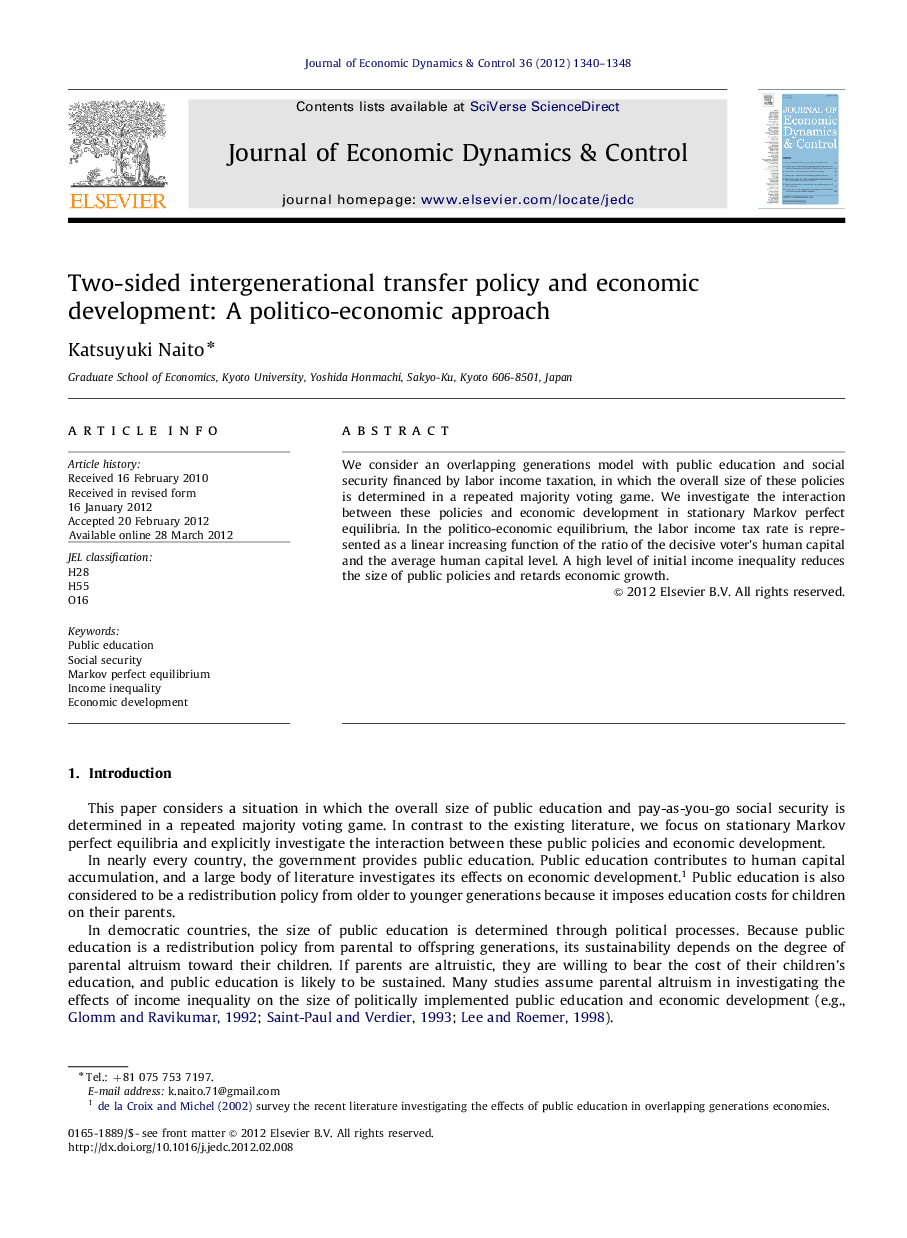| Article ID | Journal | Published Year | Pages | File Type |
|---|---|---|---|---|
| 5098989 | Journal of Economic Dynamics and Control | 2012 | 9 Pages |
Abstract
We consider an overlapping generations model with public education and social security financed by labor income taxation, in which the overall size of these policies is determined in a repeated majority voting game. We investigate the interaction between these policies and economic development in stationary Markov perfect equilibria. In the politico-economic equilibrium, the labor income tax rate is represented as a linear increasing function of the ratio of the decisive voter's human capital and the average human capital level. A high level of initial income inequality reduces the size of public policies and retards economic growth.
Keywords
Related Topics
Physical Sciences and Engineering
Mathematics
Control and Optimization
Authors
Katsuyuki Naito,
